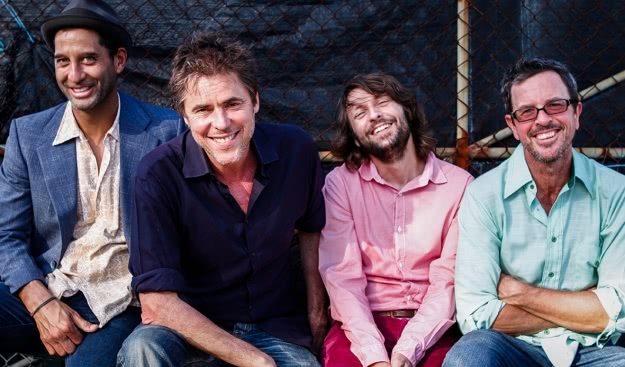Reviewed on Friday September 2.
There’s only a spattering of people milling about when Run Marlowe’s Lewis Clarke says, “It’s funny: The Whitlams actually played at my dad’s thirtieth” before continuing on with the set. The young triple j unearthed band have a sound reminiscent of a movement past; in many ways they are like a modern day Silverchair.
An indiscriminate crowd continues to spill in as Frank Sultana & The Sinister Kids play vintage Delta blues and roots, the harmonica ringing out and filling the air. Your parents’ friends are here, Gen X’ers and some ’90s kids you went to high school with; it’s a mix of people who wouldn’t usually hang together.
There’s an intimacy to The Whitlams’ performance; it’s as though you’re watching your mates in a pub on Parramatta road. A Sydney-based rock band, their act is peppered with sarcasm and playful banter with the crowd, while their lyrics are an exploration of how people, time and places form our stories. Of course, this proves especially powerful given The Whitlams’ own story is one underpinned by grief.
“Imagine you’re walking down Glebe Point road and you’re 19…” enigmatic lead singer Tim Freedman says as he stares out at the crowd and begins to play the melancholic chords of ‘Charlie No.1’, one of three songs in the Charlie trilogy from the album Eternal Nightcap. The song chronicles his relationship with founding member Stevie Plunder, a musician who committed suicide after a long battle with drug addiction; Freedman’s stage banter anecdote delivered some 20 years after the fact only adds to the song.
The band and crowd delight in hits ‘Blow Up The Pokies’, ‘Thank You (For Loving Me At My Worst)’ and ‘Love This City’, yet 1997 triple j Hottest 100 winner ‘No Aphrodisiac’ is the show’s peak. Every ounce of the band’s energy spills into the song’s climax, and its indulgently sexual nature adds fuel to that particular fire.
Towards the end, the band peels offstage. It’s just Tim Freedman and the piano. He needn’t bother singing ‘Buy Now Pay Later (Charlie No.2)’; the entire crowd are singing their hearts out as if they mean every word. It’s perhaps this moment that captures The Whitlams’ legacy – they have a unique ability to unite a city, no matter how old or young, with stories set on streets we have also walked.


































